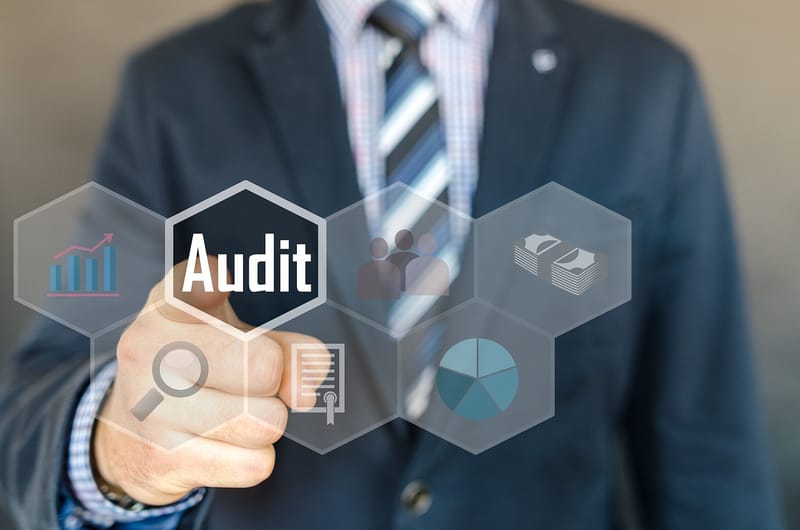AUDIT & STATUTORY AUDITORS

Reinforcing trust
Are you looking to guarantee the reliability of your financial statements and ensure the transparency of your business ?
Our audit assignments are designed to help you verify the accuracy of your financial statements and comply with current accounting standards.
We carry out our audits by assembling the appropriate multidisciplinary teams to deal with the most complex technical issues, using a proven international audit methodology and deploying state-of-the-art audit tools and technologies.
The quality of our services also relies on our knowledge of the specificities of each sector, and the implementation of methods adapted to the degree of complexity of each organization.
We mobilize our tax, technology and transaction skills whenever necessary. Our experience in the field and our highly integrated network enable us to provide services of excellence in France and worldwide.
In an ever-changing environment, your company faces many challenges: managing risks and strengthening controls, while communicating appropriately with markets and stakeholders.
Accounting and financial information plays a decisive role in underpinning the decisions of management, partners and shareholders. To certify it is to contribute to strengthening investor confidence. It also contributes to the company's development, notably through better risk management. Finally, it makes it easier to compare our performance with our international competitors.
We specialize in financial auditing services, and have extensive experience in assessing the quality of financial information.
Our specialized due diligence teams :
External growth or the arrival of an investor often rhyme with "due diligence". But what exactly is due diligence ? And what does it involve ?
Let's define due diligence :
A well-informed investor or acquirer must begin any project with an analysis of the target company. The aim ? To assess the profitability of the investment, of course. This can be done in a number of ways: interviews, visits, analysis of the market, the competition, the organization, the company's strengths and weaknesses, and so on. -The auditor is also guided by the accounting documents presented to him. Based on the latter, he can make adjustments to identify the key valuation parameters: the company's recurring (or normative) profitability and its debt situation.
This analysis will enable the investor or buyer to formulate an offer, in the form of a letter of intent which will be translated into the final deeds. During this process, it is necessary to validate the reliability of the analyzed data used to build the offer... and therefore the price.
This involves accounting, tax and social security due diligence, carried out by a specialized audit team as soon as the investor or buyer has access to the company - which is most often after the agreement has been signed, for obvious reasons of confidentiality.
The aim is to carry out limited but targeted validation work, in order to obtain satisfactory confidence in the accounting data. Only then will it be possible to present an analysis, and then validate or correct the offer made !
What's the right approach for a successful acquisition audit ?
The most important thing is to choose the work to be carried out. Since time and budget are sometimes limited, the key is to target the areas of risk and the key points that make the company valuable! This work depends on the sector of activity, the company's business model, the specific clauses of the memorandum and the particular environment of the operation, but certain subjects come up time and again :
- The existence and valuation of inventories and work-in-progress ;
- Recoverability of trade receivables ;
- Identification and assessment of risks that may give rise to provisions ;
- Completeness of recognized liabilities ;
- Income restatements to obtain EBITDA and operating income representative of business activity (taking into account normalized remuneration, neutralizing non-recurring or non-perennial items, etc.) ;
- Identification and valuation of all commitments constituting net indebtedness (leasing, retirement benefits, deferred taxes, etc.) ;
- Impact on analysis and prudential ratios ;
- Sector comparisons ;
- Analysis of the interim situation and expected landing for the current year, with a view to validating profitability and cash flow expectations for the first year ;
- Anticipation of financial consequences (ability to distribute dividends, bank financing, etc.).
This approach involves both accounting control and analysis. In other words, it requires close collaboration between the acquirer/investor and the due diligence team.